 |
|
|
| View this newsletter online |
 |
Research School for Socio-Economic and
Natural Sciences of the Environment |
| SENSE e-News |
|
|
  |
Newsletter April/May 2022
26 April 2022 |
|
 |
| • |
WIMEK's Climate Stories magazine online ›› |
| • |
IPCC report: climate change is a threat to our planet; urgent action is needed ›› |
| • |
This is how a Dutch city may look in 2120 ›› |
| • |
Innovative Education for Transformative Change ›› |
| • |
Speciation and Bioavailability of Metals, Organics and Nanoparticles, 13-17 June 2022 ›› |
| • |
Micropollutants in the water cycle, 20-24 June 2022 ›› |
| • |
Training: Media Outreach for Young Climate Researchers, early fall; application deadline 6 May 2022 ›› |
| • |
Overview of PhD / postdoc courses May-June 2022 ›› |
| • |
Overview of recently announced PhD / postdoc courses ›› |
| • |
SENSE Symposium, 2 June 2022 ›› |
| • |
Netherlands Earth and Environmental Sciences Congress (NAC), 5-6 September 2022 ›› |
| • |
Overview of upcoming events May ›› |
| • |
Overview of recently announced events ›› |
| • |
Overview of PhD graduations April/May 2022 ›› |
| • |
Call National ThinkTank (deadline: 27 April 2022) ›› |
| • |
Call SENSE Course Development (deadline: 31 May 2022) ›› |
| • |
Call Collaboration in mission-driven innovation (deadline: 21 June 2022) ›› |
| • |
Overview job vacancies ›› |
|
|
|
 |
 |
 |
| Editorial |
 |
| Extended deadline topic submissions SENSE Symposium on 2 June! |
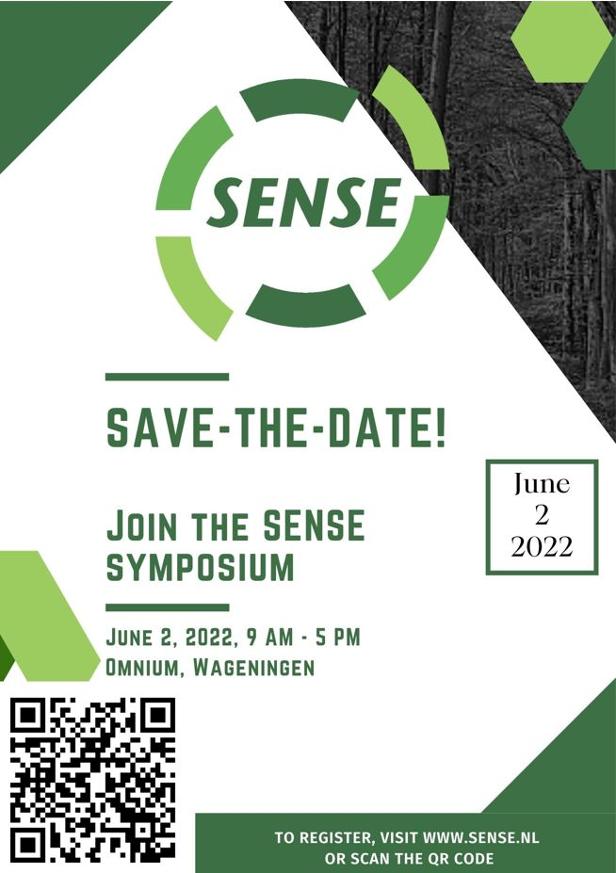 The SENSE symposium on Thursday June 2nd, 2022, 9 AM - 5 PM features interactive and participant-driven unconference meetings to discuss various Socio-Economic and Natural Science research themes within SENSE. To present and discuss your research ideas or results, please submit a topic idea by April 29nd, 2022 (was April 22nd). The SENSE symposium on Thursday June 2nd, 2022, 9 AM - 5 PM features interactive and participant-driven unconference meetings to discuss various Socio-Economic and Natural Science research themes within SENSE. To present and discuss your research ideas or results, please submit a topic idea by April 29nd, 2022 (was April 22nd).
Guest speakers will also cover various themes in-depth, there will the opportunity to present posters, and we will round the day off with drinks and further, informal discussions. More information about the programme will follow.
If you want to have your poster displayed at the symposium, please submit it by 15 May. To attend the symposium, please register before 23 May.
Science in times of crises
The aftermath of the Covid crisis is still going on, and two months ago a new crisis started in Ukrain. Without any doubt history is being written these days.
Whilst in the Covid crisis the health sciences played a heroic role, the war in Ukrain draws a lot of attention to our dependency of (Russian) fossil fuels and the need to accelerate the transition to renewable energy sources that we, a.o. the European countries, can implement ourselves. Although maybe the recent IPCC report did not get quite so much media attention as it should have due to the news about the war, both the crisis in Ukrain and the climate crisis point in the same direction of a more sustainable energy supply.
Personally I feel a little ambiguous about the fact that so many years of communication about the climate crisis did not raise as much urgent action in favour of sustainability as the current war.
But let me look at my own behaviour before I start judging others. The start of the war urged me too to lower the heating in my house with one degree. So, although I thought I was rather environmental friendly with my 17 degrees, obviously if the situation gets pressing enough, 16 degrees turns out to be okay as well. How many other steps towards more sustainability do I NOT take, although I feel I am a well informed, good-willing citizen? And what do I need to persuade me to take these steps?
This is why I like the idea of transdisciplinary research currently gaining ground. Obviously citizens and other societal stakeholders should be part of the transition to a more sustainable society, and they should also be taken seriously in an early stage of research.
On the SENSE website we already have regularly blog posts about developments in transdisciplinary research, and the new transdisciplinary PhD course "Transformative Research for Global Social-Environmental Challenges" won the first edition of the Education Innovation Award at Wageningen University & Research's Dies Natalis on March 9th this year. Read also the blogpost on this.
We recently also added "transdisciplinarity" as a separate category in the SENSE courses list, so you can easily get an overview of courses in this field by SENSE partners and others.
Personally I would be in favour of including fashion designers in the transition movement, as we may need warmer clothes that are attractive, representative and/or sexy now our public buildings and probably our homes get colder than we were used to (that is: in the winter season!).
If you prefer to get warm in a more sportive manner, you could consider to walk the Climate March 2022, to be held in Rotterdam on June 19th.
Marjolijn Dannenburg, Communication officer

|
|
|
 |
| SENSE News |
 |
| WIMEK's Climate Stories magazine online |
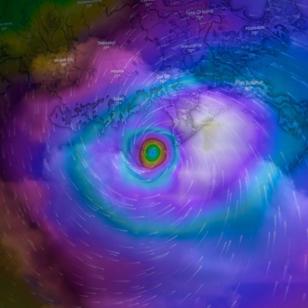 WIMEK decided to publish three online magazines with stories referring to case studies of WIMEK researchers connected to the three Grand Challenges: (i) Climate Action, (ii) Managing our future biosphere and (iii) Advancing circular systems. WIMEK decided to publish three online magazines with stories referring to case studies of WIMEK researchers connected to the three Grand Challenges: (i) Climate Action, (ii) Managing our future biosphere and (iii) Advancing circular systems.
Since the IPCC published part II of the sixth assessment report on 28 February 2022 and part III on 5 April, we kicked of with a magazine with Climate Stories.. |
|
|
| IPCC report: climate change is a threat to our planet; urgent action is needed |
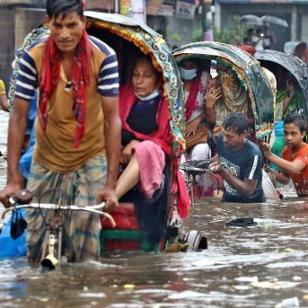 Inaction is no longer an option, as climate change is already disrupting the vulnerable environment and human life. This is stated in the report by the Intergovernmental Panel on Climate Change (IPCC) about climate impact, adaptation and vulnerabilities. Inaction is no longer an option, as climate change is already disrupting the vulnerable environment and human life. This is stated in the report by the Intergovernmental Panel on Climate Change (IPCC) about climate impact, adaptation and vulnerabilities.
We are already facing a one-degree increase in the Earth’s temperature, and the consequences are noticeable. If the temperature increases any more, then the damage will only get worse and lead to irreversible damage in several areas, more specifically vulnerable ecosystems and low-lying coastal areas, according to the report. |
|
|
| This is how a Dutch city may look in 2120 |
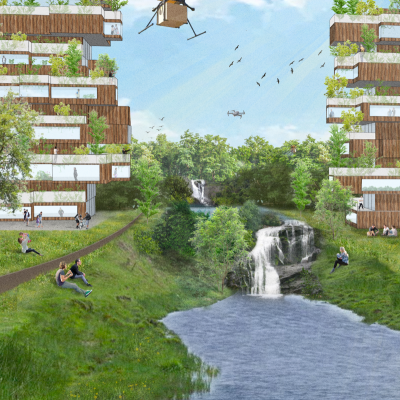 Floating houses, self-driving cars, deer in the floodplains, streams with waterfalls, and greenery instead of asphalt. Welcome to the city of 2120. Contrary to what doomsday scenarios would have you believe, you can also work towards an attractive and prosperous city in a world of climate change. Research associates of Wageningen University & Research designed a scenario for the city of the future with Arnhem as the example. Their aim is to challenge cities to start thinking about their climate resistance for the long term. Floating houses, self-driving cars, deer in the floodplains, streams with waterfalls, and greenery instead of asphalt. Welcome to the city of 2120. Contrary to what doomsday scenarios would have you believe, you can also work towards an attractive and prosperous city in a world of climate change. Research associates of Wageningen University & Research designed a scenario for the city of the future with Arnhem as the example. Their aim is to challenge cities to start thinking about their climate resistance for the long term. |
|
|
| SENSE blog |
 |
| Innovative Education for Transformative Change |
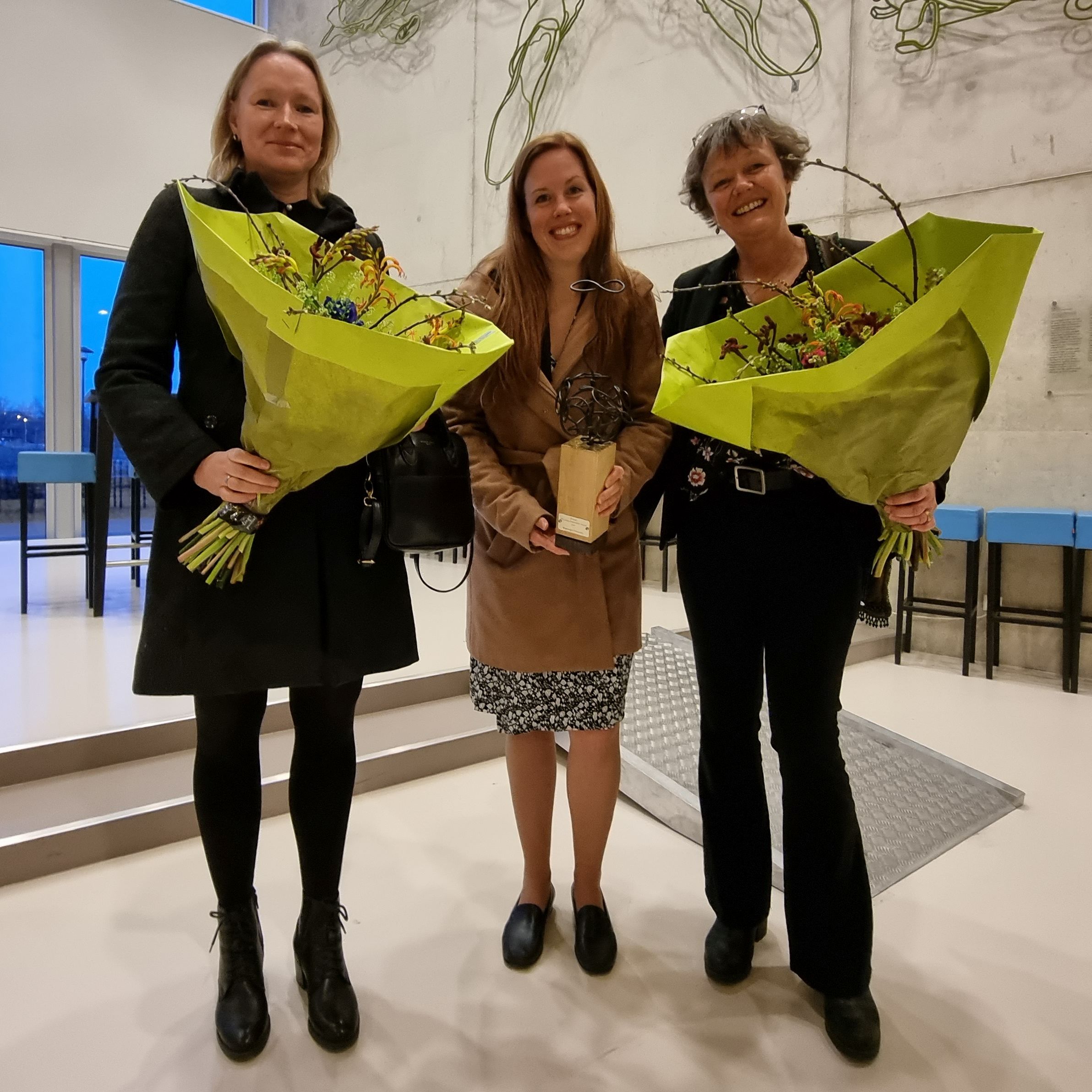 A course described by students as “one of a kind, emotionally-engaging and potentially life-changing” and “unforgettable and a great source of inspiration for my future career & life!”, was the recipient of the first edition of the Education Innovation Award at Wageningen University & Research’s Dies Natalis on March 9th, 2022. A course described by students as “one of a kind, emotionally-engaging and potentially life-changing” and “unforgettable and a great source of inspiration for my future career & life!”, was the recipient of the first edition of the Education Innovation Award at Wageningen University & Research’s Dies Natalis on March 9th, 2022.
The two-week intensive course, Transformative Research for Global Social-Environmental Challenges, was designed during the pandemic and involved 21 lecturers, from Wageningen University and Research, the University of Twente, and the Stockholm Resilience Centre. In the acceptance speech, coordinator Josie Chambers emphasized the collaborative effort behind the course: “Together we are part of a growing movement to bridge sharp critique of how our own beliefs and methods constrain us, to a sense of possibility and hope for how we can do things differently by working together.” |
|
|
|
| Do you want to have your own blog on the SENSE website, or do you want to write a single blog post? Please contact marjolijn.dannenburg@wur.nl. |
|
|
|
 |
 |
|
 |
 |
| Upcoming courses and discussion groups |
 |
| Speciation and Bioavailability of Metals, Organics and Nanoparticles, 13-17 June 2022 |
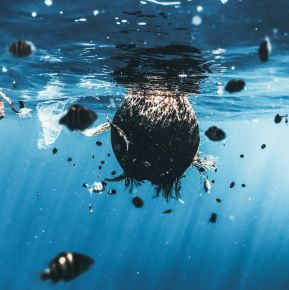 The course program will focus on the analytical and physical chemistry of metal ions in complexing aqueous environments and the bioavailabilities of different species. Due attention will also be given to the speciation and bioavailability of organic compounds. The course program will focus on the analytical and physical chemistry of metal ions in complexing aqueous environments and the bioavailabilities of different species. Due attention will also be given to the speciation and bioavailability of organic compounds.
Particular attention will be paid to the speciation and physicochemical characterization of nanoparticles, including plastic particles, as well as the bioavailability of nanoparticulate chemical species. |
|
|
| Micropollutants in the water cycle, 20-24 June 2022, Wageningen |
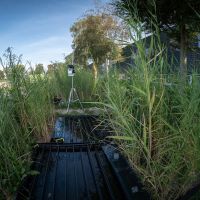 This course offers a comprehensive overview of the threats to water quality posed by micropollutants and a multidisciplinary approach to identify and solve this environmental problem. This course offers a comprehensive overview of the threats to water quality posed by micropollutants and a multidisciplinary approach to identify and solve this environmental problem.
This course is the first course to be developed with funding of the SENSE fund for the development of PhD courses. |
|
|
| Training: Media Outreach for Young Climate Researchers, early fall; application deadline 6 May 2022 |
The reality of climate change and its consequences is becoming increasingly apparent. Current climate related research focuses – among other things – on the physical basis of climate change, the ecological and societal impacts, and routes for mitigation and adaptation. Understandably, climate related research is expanding and an increasing number of researchers are involved in various types of climate research. We now face the challenge of communicating the rapidly evolving insights of climate research to society. One important route for doing so is through media outreach: in newspapers, on radio or television, and through social media channels.
To equip early career climate researchers with the skills to communicate their research with the media, TU Delft’s Climate Action Hub and KlimaatHelpdesk are jointly hosting a media outreach training for PhD candidates and postdoctoral researchers. In this training, you will learn about how you can best convey your research and its implications with confidence to a wide media audience. You will engage and build your skills through hands-on case studies. This is also an opportunity to meet other early career researchers from a wide array of disciplines, as well as media professionals. |
|
|
| Overview of PhD / postdoc courses May-June 2022 |
- ReMaT - Research Management Training for Early-Stage-Researchers
4-5 May 2022, Hamburg, Germany
- Agrarian and Food Citizenship
6-13 May 2022, Wageningen
- Summer school river Lives and Living Rivers: Towards a transdisciplinary conceptualization
9-19 May 2022
- Critical perspectives on social theory
9 May - 9 June 2022, Wageningen
- Basic Statistics
10-18 May 2022, Wageningen
- Advanced Course on Economic Regulation (NEW)
12 May - 23 June 2022
- Applied statistics
16-23 May 2022, Wageningen
- RMarkdown
30-31 May 2022, Wageningen
- Navigating Brussels with ELLS 2022 - How can the EU help you to develop your scientific career? (NEW)
31 May - 2 June 2022, Brussels, Belgium
- Linear Models (NEW)
1-3 June 2022, Wageningen
- Water Policy and Politics (NEW)
1-3 June 2022
- MOOC: Co-creating sustainable cities
7 June - 6 December 2022, online
- Mixed Linear Models (NEW)
9-10 June 2022, Wageningen
- Soil Ecology (new dates)
12-16 June 2022
- NCK Summer School: Estuarine and Coastal Processes in relation to Coastal Zone Management
12-24 June 2022, Texel
- Speciation and Bioavailability of Metals, Organics and Nanoparticles
13-17 June 2022, Antwerpen, Belgium
- Generalized Linear Models (NEW)
15-17 June 2022, Wageningen
- Microbial Ecology (new dates)
19-24 June 2022
- Micropollutants in the water cycle
20-24 June 2022, Wageningen
- Chemometrics (Multivariate Statistics)
20-22 June 2022
- Artificial Intelligence for Detection and Attribution of Climate Extremes (NEW)
20 June - 1 July 2022, Italy
- BioBusiness Summer School
27 June - 1 July 2022, Amsterdam
- Bayesian Statistics (NEW)
27-30 June 2022, Wageningen
|
|
|
| Overview of recently announced PhD / postdoc courses |
- Microalgae Process Design: from cells to photobioreactors
1-8 July 2022, Wageningen
- Summer school Anthropocene
4-8 July 2022, Groningen
- Summer School Theory and Practice of Efficiency & Productivity Measurement
4-15 July 2022, Wageningen
- Tidy data transformation and visualization with R
5-15 July 2022, online
- Deep learning
11-15 July 2022, Amsterdam
- Behavioral Decision Making
18-22 July 2022, Amsterdam
- Introduction in Genome-Wide Data Analysis
18-22 July 2022, Amsterdam
- Research on Productivity, Trade, and Growth
25-29 July 2022, Amsterdam
- Foundations of Data Analysis and Machine Learning in Python
25-29 July 2022, Amsterdam
- Econometrics and Data Science Methods for Business and Economics and Finance
15-19 August 2022, Amsterdam
- Insects as Feed: Interdisciplinary approach to insects as sustainable feed component
21-26 August 20222, Ede
- Experimenting with Communication – A Hands-on Summer School
22-26 August 2022, Amsterdam
- Reinforcement Learning
22-26 August 2022, Rotterdam
- Behavioral Macro and Complexity
22-26 August 2022, Online
- International TD Summer School – Transdisciplinarity methods and tools for dealing with sustainability and land use conflicts
25 September - 1 October 2022, Spain
- Introduction to R and R Studio
15-25 November 2022, online
- Uncertainty propagation in spatial and environmental modelling
5-9 December 2022, Wageningen
- Integrated Multi-Omics approaches for Improvement of Industrial Microbes
22-26 May 2023, Delft
- Partnering for Change: Link Research to Societal Challenges
any time, online
In case you are interested in either participating or teaching a course that is currently not in the programme, please do not hesitate and contact us with your suggestions. |
|
|
|
 |
 |
|
 |
 |
| Upcoming Events |
 |
| SENSE Symposium, 2 June 2022 |
 We would like to draw your attention to the SENSE symposium on Thursday June 2nd, 2022, 9 AM - 5 PM. We would like to draw your attention to the SENSE symposium on Thursday June 2nd, 2022, 9 AM - 5 PM.
The symposium features interactive and participant-driven unconference meetings to discuss various Socio-Economic and Natural Science research themes within SENSE. To present and discuss your research ideas or results, please submit a topic idea by April 29nd, 2022.
Guest speakers will also cover various themes in-depth, there will the opportunity to present posters, and we will round the day off with drinks and further, informal discussions. More information about the programme will follow. |
|
|
| Netherlands Earth and Environmental Sciences Congress (NAC), 5-6 September 2022 |
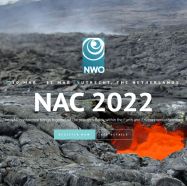 We are happy to announce that for the first time NAC will bring together researchers from the Earth and Environmental Sciences. We are happy to announce that for the first time NAC will bring together researchers from the Earth and Environmental Sciences.
The 18th edition of NAC (Nederlands Aardwetenschappelijk Congres) brings together the research fields within the Earth and Environmental Sciences. The event aims to continue to provide a true interdisciplinary forum for discussion and for young scientists to present their research results to a broad audience. The 18th edition will be a hybrid event. Attendants can participate, in-person and/or virtually.
Abstract submission deadline: 11 May
Registration deadline: 26 August |
|
|
| Overview of upcoming events May 2022 |
|
|
|
|
| Overview of recently announced events |
|
|
|
|
| Upcoming PhD graduations |
 |
| Overview of PhD graduations April/May 2022 |
- Pavan Cornelissen
Modelling sustainability and impacts of re-using wastewater for irrigation
1 April 2022, Wageningen University, Soil Physics and Land Management
- Merlijn Moerland
Thermophilic and hyper-thermophilic anaerobic digestion as novel treatment technologies for safe nutrient recovery from concentrated black water
8 April 2022, Wageningen University, Environmental Technology
- Carlos Martinez Cano
Evaluation of green and grey infrastructures for runoff and pollutant reduction
11 April 2022, IHE Delft, Water Supply, Sanitation and Environmental Engineering
- Miguel Angel Laverde Barajas
Improving satellite-based precipitation estimates: a spatiotemporal object-oriented approach to error analysis and correction
11 April 2022, IHE Delft, Hydroinformatics and Socio-Technical Innovation
- Nicolas Beriot
Plastic mulch and pesticides residues in intensive agriculture
19 April 2022, Wageningen University, Soil Physics and Land Management
- Jonatan Godinez Madrigal
Paradigm Lost - On the value of lost causes in transforming cities and water systems' development pathways
26 April 2022, IHE Delft, Land & Water Management
- Asimenia Gavriilidou
Zooming into the sponge microbiome: Characterization of sponge-associated microorganisms in the multi omics area
25 May 2022, Wageningen University, Microbiology
- Margaret Armstrong
On a razor's edge: maintaining lake ecosystem services and functions in an extreme world
30 May 2022, Wageningen University, Aquatic Ecology and Water Quality Management
|
|
|
|
 |
 |
|
 |
 |
| Calls |
 |
| Call National ThinkTank (deadline: 27 April 2022) |
| Are you a Dutch masters or PhD student that directly wants to make societal impact after graduating? The National ThinkTank is recruiting new members for 2022! Together with twenty talented participants you will follow a 4 month programme – from the 15th of August till the 16th of December – in which you will do research into and find practical solutions for a current social issue. This year, the National ThinkTank will focus on the topic “biodiversity”. The global climate crisis emphasizes that this theme requires our attention. Think about soil fertility and crop pollination in agriculture, unclear policy from the Dutch government regarding nature, lack of awareness among policymakers, companies and citizens, and financial risks. While, with a proper approach, a green environment can contribute to social cohesion, and our physical and mental health. |
|
|
| Call SENSE Course Development (deadline: 31 May 2022) |
| To support the development of new courses and the collaboration between members, SENSE allocated an annual fund of 20.000 euros to support course development. Each proposal can apply for a maximum of 4.500 euro. Applications are open to all SENSE member institutes. |
|
|
| Call Collaboration in mission-driven innovation (deadline: 21 June 2022) |
Within the KIC 2020-2023, budget is available for research on cooperation in mission-driven innovation systems, in the context of the Knowledge and Innovation Agenda Social Earning Capacity. Interdisciplinary consortia including research institutes and public and private organisations can submit proposals with a total budget of at least € 750,000 and at most € 4,000,000.
Climate change, cyber security, the ageing population: the Mission-Driven Top Sectors and Innovation Policy of the Dutch government puts major societal challenges on the agenda that require both technological and social innovation, with societal and economic impact as the starting point. This requires interdisciplinary collaboration (collaboration between researchers from different science domains: humanities, natural sciences and social sciences ) and multi-stakeholder collaboration (collaboration between governments, citizens, NGOs, knowledge institutions, financial institutions and industry; also referred to as the triple/quadruple helix approach). The aim of this call is to develop knowledge and action perspectives that can be used to understand and successfully apply strategies for multi-stakeholder collaboration in complex societal challenges as formulated in the 25 missions of the Mission-Driven Top Sectors and Innovation policy . The following question is pivotal: How can collaborative forms and methods for mission-driven innovation systems, with the involvement of many different stakeholders, contribute to the missions and societal earning capacity? |
|
|
 |
| Job vacancies |
 |
| Overview of vacancies at SENSE partners |
- Assistant Professor Modeling responses to global change - Environmental Sciences at the Copernicus Institute of Sustainable Development, Utrecht University
Apply before 27 April 2022
- Assistant Professor in Spatial Information for Sustainable Agriculture, University of Twente
Apply before 27 April 2022
- Assistant Professor Nature-based solutions for negative emissions, Utrecht University
Apply before 29 April 2022
- PhD position in sustainability certification of bio-based products, Utrecht University
Apply before 30 April 2022
- Assistant Professor in Marine Biogeochemistry, Utrecht University
Apply before 30 April 2022
- Junior Researcher non-state and subnational climate policy, Utrecht University
Apply before 1 May 2022
- PhD researcher on Modeling the impacts of a Circular Economy on Greenhouse Gas Emissions, Utrecht University
Apply before 1 May 2022
- PhD Scenarios and solutions for climate change mitigation and adaptation, Wageningen University
Apply before 3 May 2022
- PhD Candidate "Deep learning based object outline extraction from airborne sensor data", University of Twente
Apply before 6 May 2022
- PhD Instruments to enhance the transition to sustainable Dutch rural landscapes, Wageningen University
Apply before 7 May 2022
- Junior Researcher Plastic Pollution in Urban Water Systems, Wageningen University
Apply before 7 May 2022
- PhD: Enhancing the local water cycle via evaporation for a sustainable water supply, Wageningen University
Apply before 9 May 2022
- PhD: Towards a circular sulphur economy, Wageningen University
Apply before 9 May 2022
- PhD: Optimising electrochemical phosphate recovery, Wageningen University
Apply before 9 May 2022
- PhD: EPS-based solutions to increase soil structure and resilience to drought, Wageningen University
Apply before 9 May 2022
- Researcher Climate and Agriculture, Wageningen University
Apply before 9 May 2022
- PhD Environmental limits to global groundwater, Wageningen University
Apply before 9 May 2022
- Postdoc Modelling groundwater use and crop production, Wageningen University
Apply before 9 May 2022
- Lecturer environmental systems analysis, Wageningen University
Apply before 10 May 2022
- Tenure Track Assistant or Associate Professor in Molecular Genetics of Adaptation, Rijksuniversiteit Groningen
Apply before 16 May 2022
- Tenure Track Assistant/Associate Professor in Theoretical Biology, Rijksuniversiteit Groningen
Apply before 16 May 2022
- Tenure Track Assistant/Associate Professor in Evolutionary Eco(physio)logy, Rijksuniversiteit Groningen
Apply before 16 May 2022
- Tenure Track Assistant Professor with education profile in Ecology & Evolution, Rijksuniversiteit Groningen
Apply before 16 May 2022
- PhD: Electrochemical Nutrient Recovery for Enhancing Agricultural Circularity, Wageningen University
Apply before 18 May 2022
- PhD Using organic matter to reduce pesticide leaching, Wageningen University
Apply before 18 May 2022
- PhD position - Changing Rivers, Utrecht University
Apply before 31 May 2022
- Professor of Open Science from a Majority World Perspective, University of Twente
Apply before 31 May 2022
- Researcher in Spatial Data Science, Utrecht University
Apply before 31 May 2022
|
|
|
| Other vacancies in the SENSE field |
|
|
|
|
| More vacancies |
| During the month new vacancies are regularly posted on the SENSE vacancy page. |
|
|
|
 |
 |
|
 |
|